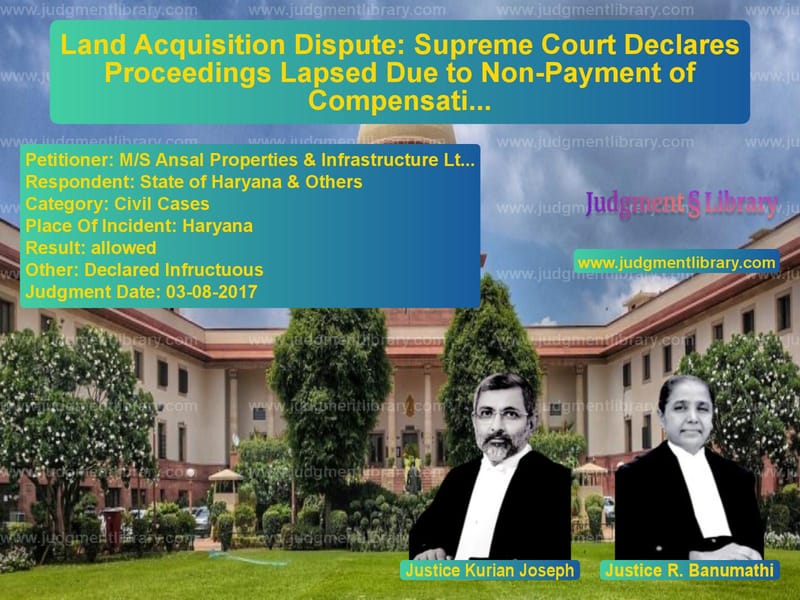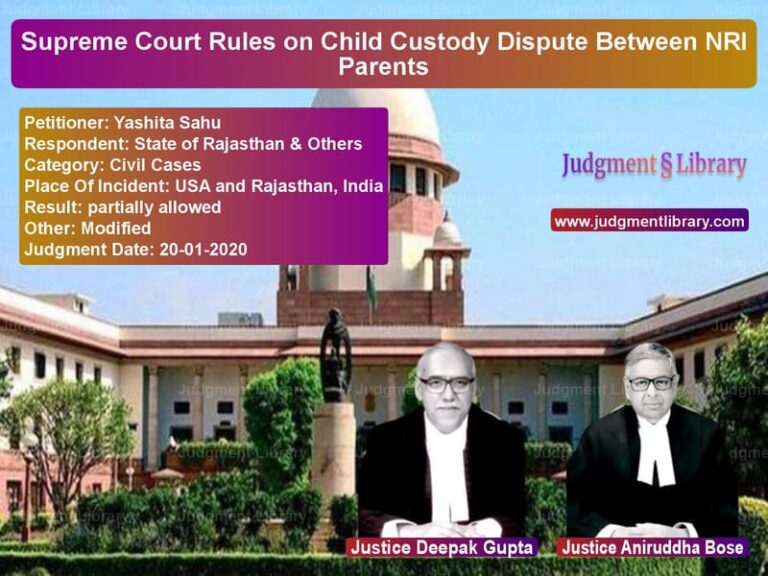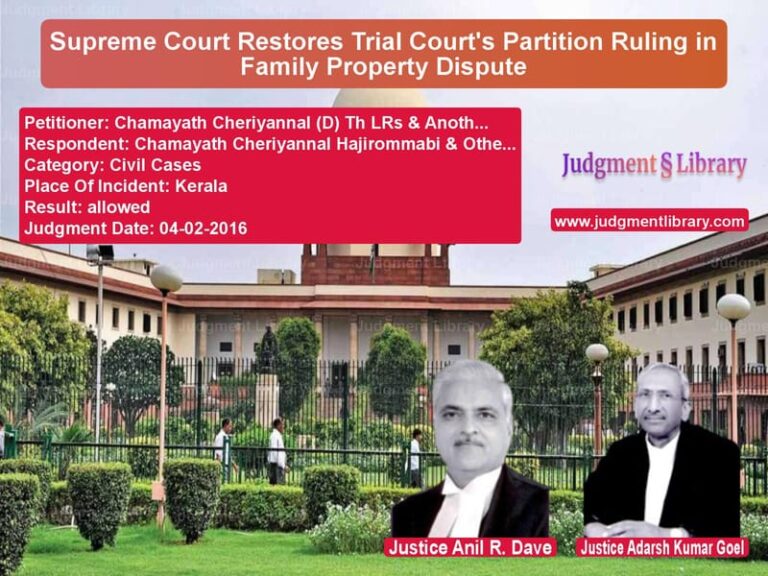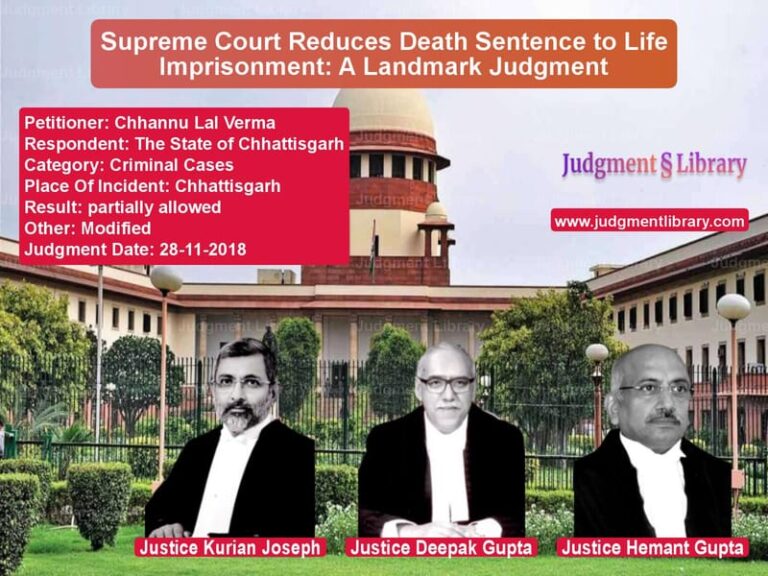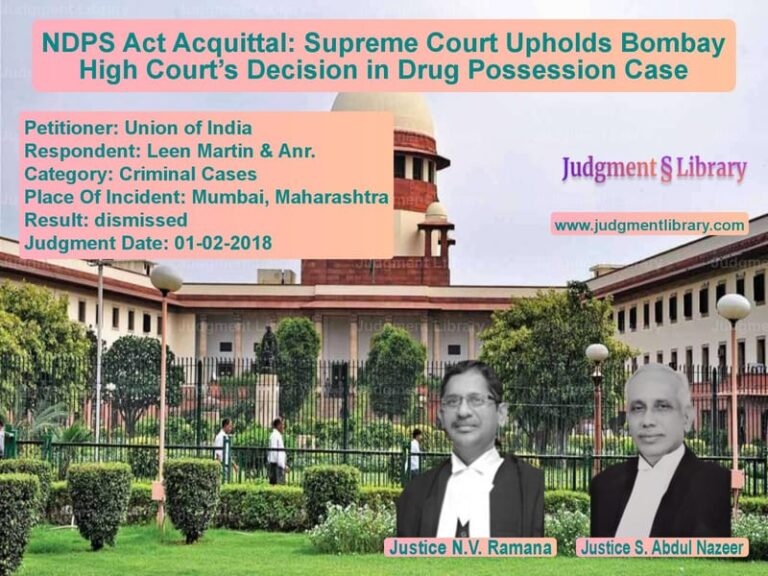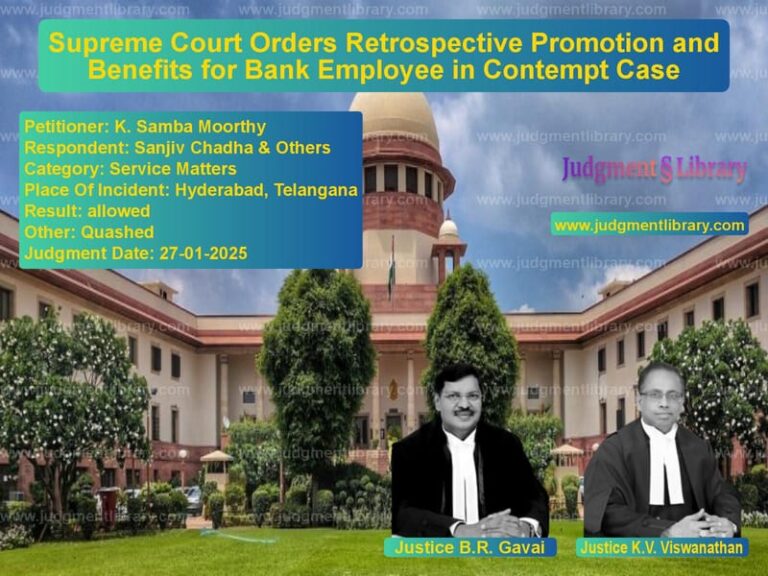Land Acquisition Dispute: Supreme Court Declares Proceedings Lapsed Due to Non-Payment of Compensation
The case between M/S Ansal Properties & Infrastructure Ltd. and the State of Haryana revolved around land acquisition proceedings. The key issue in the case was whether the acquisition proceedings had lapsed under The Right to Fair Compensation and Transparency in Land Acquisition, Rehabilitation and Resettlement Act, 2013, due to non-payment of compensation to landowners.
Background of the Case
The State of Haryana initiated land acquisition proceedings affecting the land owned by M/S Ansal Properties & Infrastructure Ltd. The landowners contested the validity of the acquisition due to non-payment of compensation. The proceedings were challenged in court, and during the litigation, the new land acquisition law, i.e., The Right to Fair Compensation and Transparency in Land Acquisition, Rehabilitation and Resettlement Act, 2013, came into force.
Legal Issue Before the Court
The Supreme Court was called upon to decide whether the land acquisition proceedings had lapsed under Section 24(2) of the 2013 Act, which states that if compensation has not been paid within five years before the enactment of the Act, the acquisition proceedings would lapse.
Arguments by the Parties
Petitioner’s Arguments
The counsel for the petitioner, M/S Ansal Properties & Infrastructure Ltd., argued:
- That no compensation had been paid to the landowners.
- Under the provisions of the 2013 Act, any acquisition where compensation has not been paid shall be deemed to have lapsed.
- The State should be required to initiate fresh acquisition proceedings under the 2013 Act if it wishes to acquire the land.
Respondent’s Arguments
The State of Haryana, represented by Additional Solicitor General Mr. Tushar Mehta, contended:
- The land had already been put to use by the State.
- The purpose of acquisition was in public interest, and therefore, it should not be invalidated.
- Fresh acquisition proceedings should not be mandated as it would create unnecessary complications.
Supreme Court’s Decision
The Supreme Court, comprising Justices Kurian Joseph and R. Banumathi, ruled in favor of the petitioner.
“On the admitted position that the compensation has not been paid to the owners, in view of the settled position, this Court has to give a declaration that the proceedings have lapsed. Ordered accordingly.”
The Court made the following observations:
- Since no compensation had been paid to the landowners, the acquisition proceedings automatically lapsed under the 2013 Act.
- The State of Haryana could not claim ownership over the disputed land unless fresh acquisition proceedings were initiated.
- The State was given six months to begin fresh proceedings under the 2013 Act if it intended to continue with the acquisition.
- If no fresh proceedings were initiated within six months, the State would lose its claim over the land.
Conclusion
This judgment reinforced the principles of fair compensation and transparency in land acquisition. It served as a strong reminder to state authorities that mere possession of land without fulfilling legal obligations does not validate an acquisition. The ruling ensured that landowners’ rights were protected and that the State followed proper legal procedures before acquiring private land.
Don’t miss out on the full details! Download the complete judgment in PDF format below and gain valuable insights instantly!
Download Judgment: MS Ansal Properties vs State of Haryana & O Supreme Court of India Judgment Dated 03-08-2017.pdf
Direct Downlaod Judgment: Direct downlaod this Judgment
See all petitions in Property Disputes
See all petitions in Landlord-Tenant Disputes
See all petitions in Damages and Compensation
See all petitions in Judgment by Kurian Joseph
See all petitions in Judgment by R. Banumathi
See all petitions in allowed
See all petitions in Declared Infructuous
See all petitions in supreme court of India judgments August 2017
See all petitions in 2017 judgments
See all posts in Civil Cases Category
See all allowed petitions in Civil Cases Category
See all Dismissed petitions in Civil Cases Category
See all partially allowed petitions in Civil Cases Category

